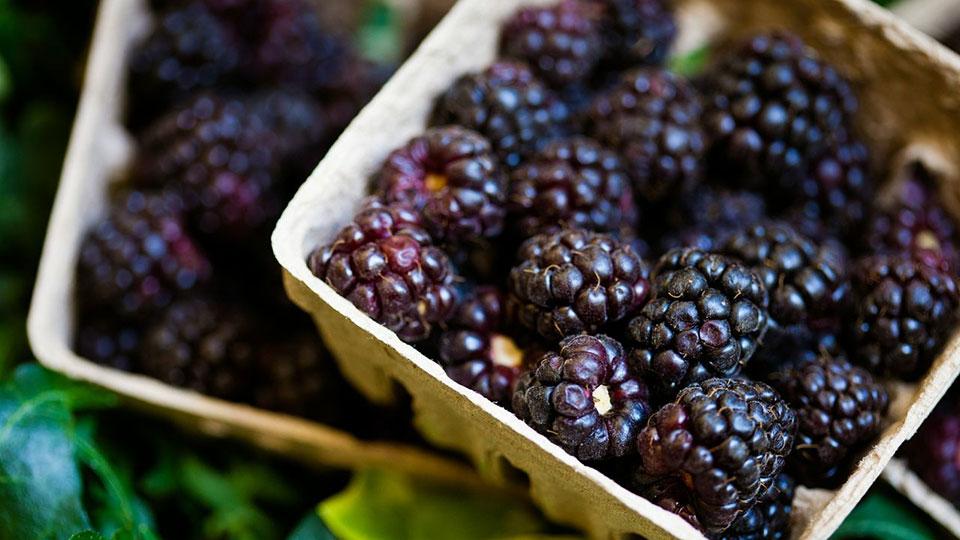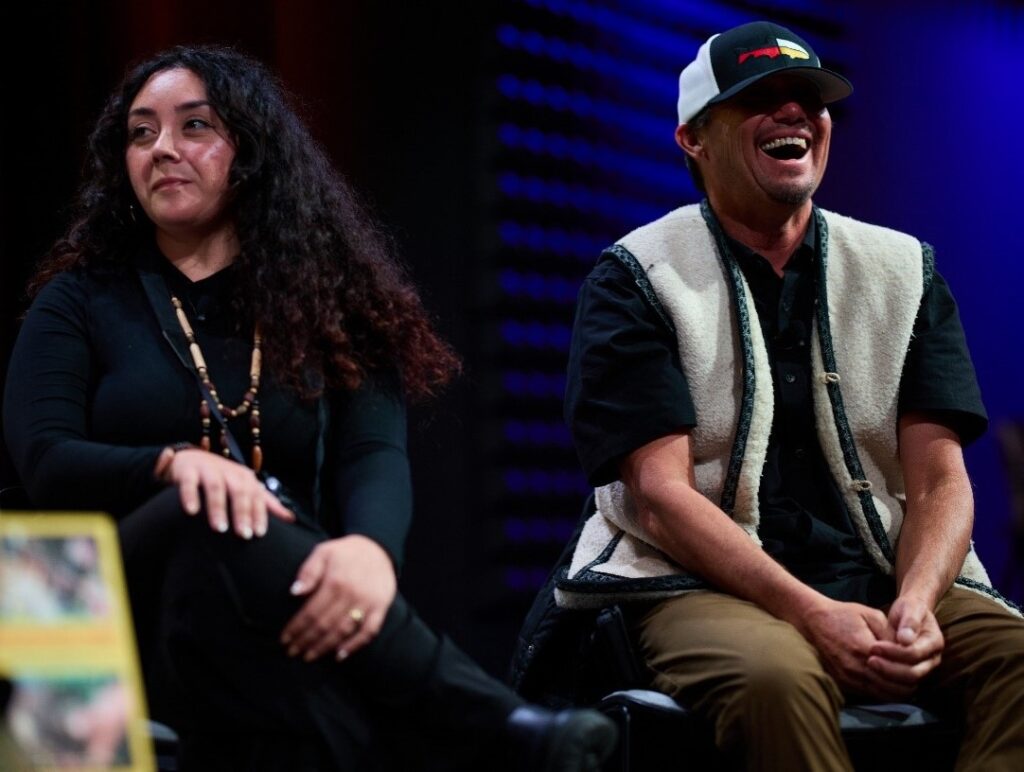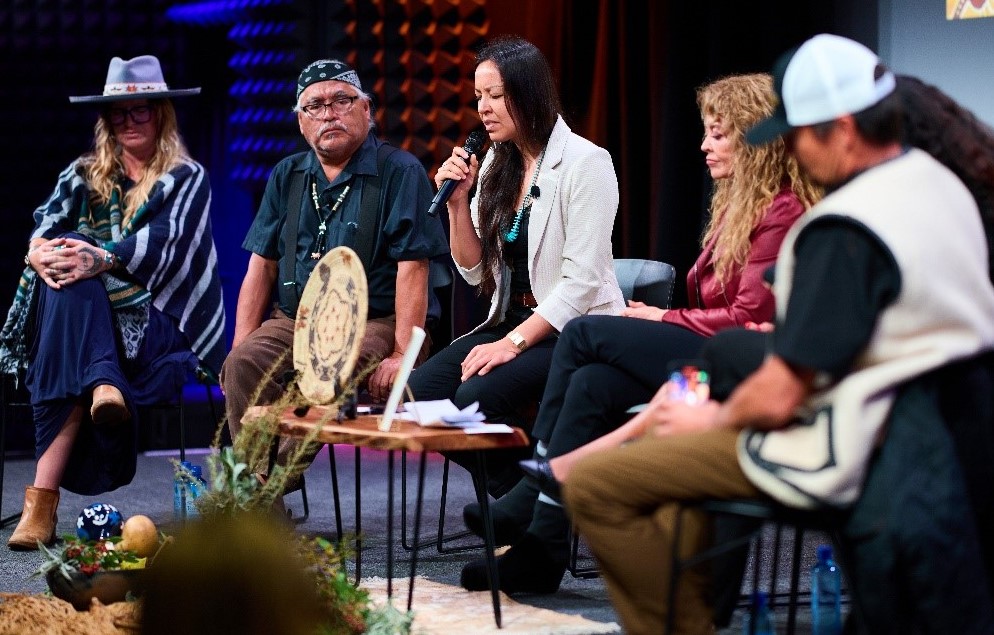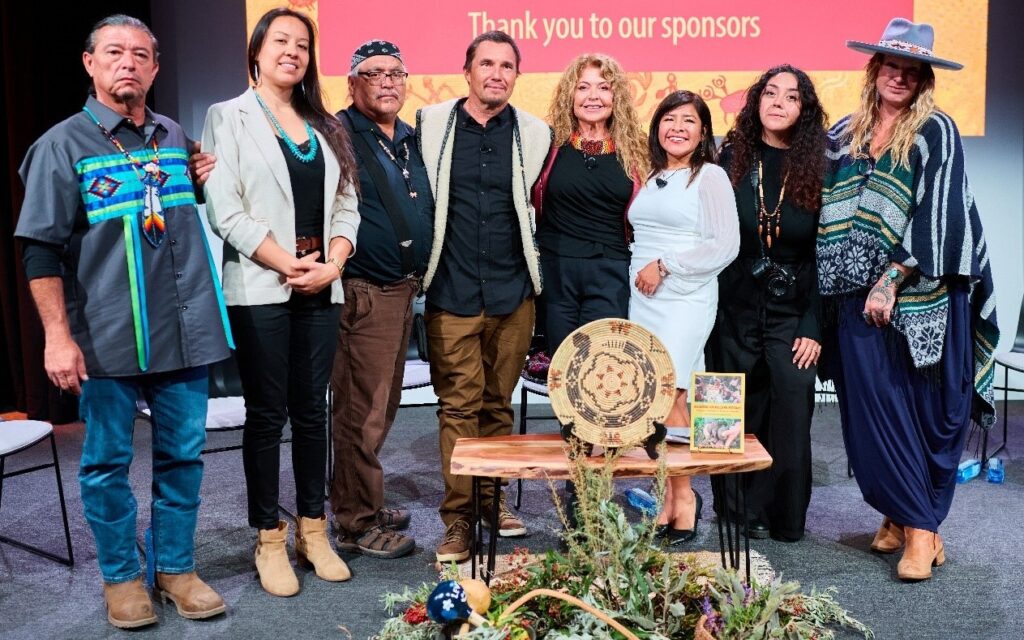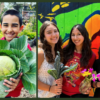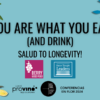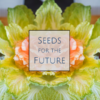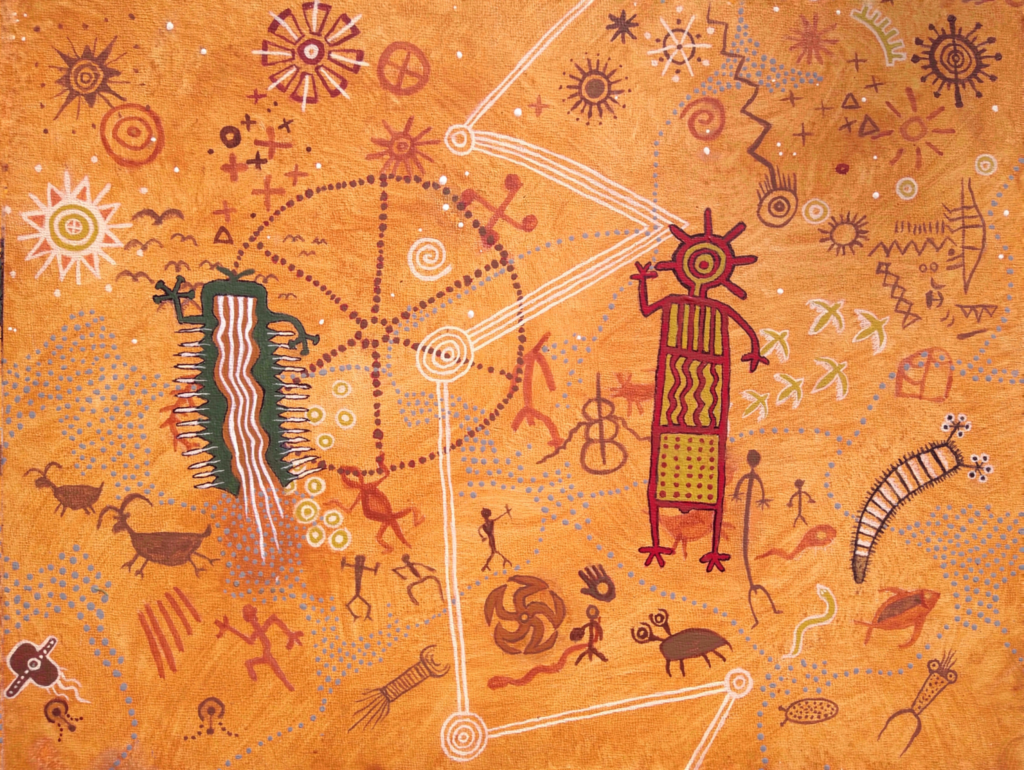
Artwork for the event design was provided courtesy of Kumeyaay artist Kenneth Banks, whose mural “Honoring Our Ancestors” is on display at City College
On November 16, 2024, in honor of Indigenous Heritage Week and Native American Heritage Month, Berry Good Food hosted its 14th Future Thought Leaders Panel Discussion, “Ancestral Pathways: Exploring the Indigenous Roots of Regeneration.” Organized by Berry Good Food in partnership with University of California Television, the panel took place at UCSD Park & Market in downtown San Diego, California. The event was co-sponsored by World Design Capital, Indigenous Regeneration, Our Worlds, and Solar Rain. The panel aimed to delve into the historical and contemporary practices of Indigenous peoples in relation to regenerative agriculture.
The panel featured a diverse group of experts:
Mirna Borrego: Visual storyteller for the San Antonio Necua Community of Kumiai, a partner in the Sagebrush Defense project, and graphics contributor of “The Living Community Cookbook.”
Lacey Rae Cannon: Founder and Executive Director of Indigenous Regeneration, co-creator of the Kumeyaay Ethnobotany Board Game, and manager of the Mata’Yuum Paradise Valley Farm.
Dr. Maria Elena Huambachano: Native Peruvian scholar and author of “Recovering Our Ancestral Food Ways: Indigenous Traditions as a Recipe for Living Well.”
Dr. Lyla June Johnston: Indigenous musician, scholar, and community organizer of Diné, Tsétsėhéstȧhese, and European lineages, and co-author of “Possibilities of Regeneration.”
James Skeet: Co-founder of Covenant Pathways and Spirit Farm on the Navajo Nation, and author of “Disrupted by Nature, Distracted by Ego.”
Adam Uribe: Founder of Red Earth Movement, dedicated to healing the land and its people through regenerative agriculture, and multi-generational seed holder.
The event began with a traditional Bird Song and blessing by Blue Eagle Vigil and his family, who are members of the Kumeyaay Nation, the original stewards of the land where the discussion was held. This was followed by an opening address from World Design Capital’s Mai Nguyen and a land acknowledgment made by Berry Good Food founder and panel moderator Michelle Ciccarelli Lerach.
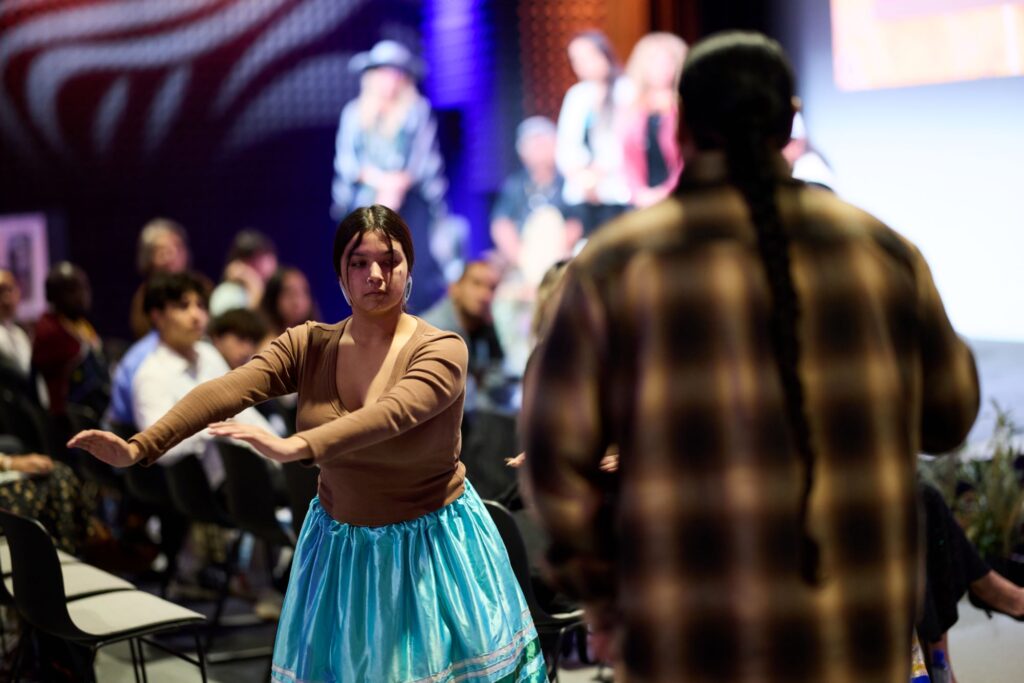
Bird Song and blessing by Blue Eagle Vigil and his family, members of the Kumeyaay Nation (All photos: Guy Desrouilleres)
The discussion kicked off with a focus on regenerative agriculture, a topic that may seem modern but is rooted in rich Indigenous practices. The panelists shared insights into how we can trace these practices back to their ancestor’s beginnings, and emphasized the deep holistic relationship that Indigenous peoples have with the land.
Dr. Lyla June Johnston spoke passionately about some common misconceptions regarding Indigenous peoples and their connection to the land before European colonization. She highlighted that these communities were far from primitive nomads; they were sophisticated caretakers of the earth, managing vast gardens and ecosystems that supported both people and wildlife. She gave us some great examples, like the cultivation of chestnut trees and clam gardens, which beautifully illustrated their intentional approach to managing natural resources.
Dr. Maria Elena Huambachano brought in her research on Indigenous food sovereignty, sharing the shared traditions that unite Indigenous peoples worldwide. She stressed the importance of understanding local knowledge and the essential need for solidarity among Indigenous communities as they work to reclaim their food systems and cultural practices.
The discussion then shifted to the vital role of seeds in Indigenous cultures. Adam Uribe engaged us with thoughts on seed saving and how deeply connected seeds are to cultural identity. They’re not just agricultural inputs; they’re a core part of the stories and traditions of Indigenous peoples. To this point, James Skeet shared how we in the United States need to reignite our fire and spirit as we’ve become too passive and docile – an unfortunate result of the colonial system. Lacey Rae Cannon expressed how we’ve lost our connection to the earth and quoted one of her elders who said, “We forget that we’re made of earth until we turn back into it.”
Throughout the conversation, the panelists highlighted the healing power of reconnecting with ancestral practices, especially as a way to address historical trauma. They emphasized how crucial it is for Indigenous communities to reclaim their food systems and cultural practices that have been disrupted over the years. In a vulnerable moment, Mirna Borrego expressed initial intimidation about being on the panel but found a renewed sense of confidence of why she would be there: to help share her story of how the Kiliwa people of San Quintin Bay, Baja California MX are fighting for their land back.
Dr. Lyla June Johnston called for solidarity among Indigenous peoples and encouraged allies to lend their support. She urged everyone to work together to uplift Indigenous voices in conversations about land management, food sovereignty, and environmental justice. The audience had the privilege of hearing her perform her original song, All Nations Rise.
As the panel wrapped up, Bobby Wallace of the Barona Band of Mission Indians shared a heartfelt call to action for all attendees: engage with Indigenous communities, learn from their knowledge, and support their efforts to reclaim cultural practices and land. This discussion truly highlighted the resilience of Indigenous peoples, and the importance of building relationships based on respect, reciprocity, and a shared love for the Earth.
Click here to watch the panel video.
Catch up on all of our Future Thought Leaders panel discussions here.
